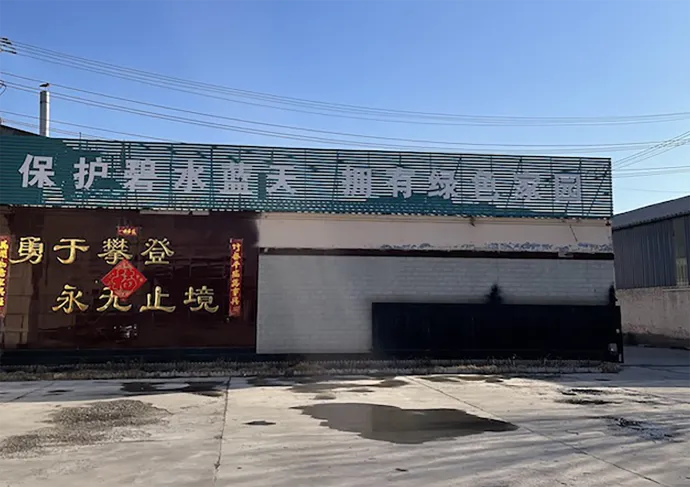- Afrikaans
- Albanian
- Amharic
- Arabic
- Armenian
- Azerbaijani
- Basque
- Belarusian
- Bengali
- Bosnian
- Bulgarian
- Catalan
- Cebuano
- Corsican
- Croatian
- Czech
- Danish
- Dutch
- English
- Esperanto
- Estonian
- French
- German
- Greek
- Hindi
- Indonesian
- irish
- Italian
- Japanese
- Korean
- Lao
- Malay
- Myanmar
- Norwegian
- Norwegian
- Polish
- Portuguese
- Romanian
- Russian
- Serbian
- Spanish
- Swedish
- Thai
- Turkish
- Ukrainian
- Uzbek
- Vietnamese
ธ.ค. . 05, 2024 11:43 Back to list
mineral fiber board
Understanding Mineral Fiber Board Properties, Benefits, and Applications
Mineral fiber board, often referred to as mineral wool board or rock wool board, is a versatile and widely used building material that is known for its excellent insulating properties, fire resistance, and soundproofing capabilities. This article will explore the characteristics, benefits, and applications of mineral fiber board, shedding light on why it is a preferred choice for various construction projects.
Properties of Mineral Fiber Board
Mineral fiber board is primarily made from natural or recycled minerals such as basalt, diabase, and other volcanic rocks. The manufacturing process involves melting these minerals at high temperatures and spinning them into fine fibers, which are then compressed into boards. This technique endows the boards with several key properties
1. Thermal Insulation Mineral fiber boards have low thermal conductivity, which makes them effective insulators. They can significantly reduce heat loss in buildings, leading to improved energy efficiency and lower heating and cooling costs.
2. Fire Resistance One of the standout features of mineral fiber board is its fire-resistant nature. With a melting point exceeding 1,000 degrees Celsius, these boards can withstand high temperatures and are non-combustible, thus providing enhanced safety in residential and commercial properties.
3. Sound Absorption The fibrous structure of mineral fiber board allows it to absorb sound effectively, making it an excellent choice for soundproofing applications. It helps reduce noise levels in offices, theaters, and residential spaces, contributing to a more comfortable environment.
4. Moisture Resistance Mineral fiber boards are resistant to moisture and do not support the growth of mold and mildew. This property is crucial for maintaining indoor air quality and ensuring the longevity of the building materials.
Benefits of Using Mineral Fiber Board
The benefits of mineral fiber board extend beyond its inherent properties. Some of the noteworthy advantages include
- Sustainability Many manufacturers produce mineral fiber boards from recycled materials, making them an environmentally friendly option
. The use of such sustainable materials contributes to green building practices and can help achieve LEED certification.mineral fiber board

- Ease of Installation Mineral fiber boards are lightweight and easy to handle, allowing for quick and straightforward installation. They can be cut and shaped with basic tools, making them convenient for contractors and DIY enthusiasts alike.
- Versatile Applications Mineral fiber boards can be used in a variety of applications. They are commonly employed as insulation in walls, roofs, and floors. Additionally, they are often used as acoustic panels in offices, auditoriums, and music studios to improve sound quality.
Applications of Mineral Fiber Board
The versatility of mineral fiber board makes it suitable for diverse applications across different sectors, including
1. Residential Construction Homebuilders often use mineral fiber board for insulation in attics and walls. Its fire-resistant properties provide peace of mind to homeowners.
2. Commercial Buildings Office spaces benefit from mineral fiber board’s sound absorption qualities, creating a conducive work environment. Additionally, it is used in raised flooring systems to improve energy efficiency.
3. Industrial Facilities In factories and industrial plants, mineral fiber board is utilized for insulation around piping and equipment to prevent energy loss.
4. Educational Institutions Schools often install mineral fiber boards for their acoustic benefits, helping to create a quieter learning environment.
Conclusion
Mineral fiber board stands out as a superior building material that combines thermal insulation, fire safety, sound absorption, and moisture resistance. Its sustainability and ease of installation further enhance its appeal, making it a preferred choice for a wide range of applications in both residential and commercial settings. As more builders and architects recognize its benefits, mineral fiber board is poised to play an even more significant role in the construction industry in the years to come.
-
Transform Interiors with PVC Gypsum Ceiling: A Stylish, Durable, and Moisture-Resistant SolutionNewsMay.19,2025
-
The Smart Interior Upgrade: Discover the Durability and Versatility of Gypsum Ceiling Access Panel SolutionsNewsMay.19,2025
-
The Smart Choice for Interior Design: Discover the Value of PVC Gypsum Ceiling SolutionsNewsMay.19,2025
-
Mineral Fiber Ceiling Tiles: The Smart Blend of Performance and AestheticsNewsMay.19,2025
-
Mineral Fiber Ceiling Tiles: The Superior Choice Over Gypsum for Sound and Fire SafetyNewsMay.19,2025
-
Mineral Fiber Ceiling Tiles: Eco-Friendly Strength and Style for Every CeilingNewsMay.19,2025







